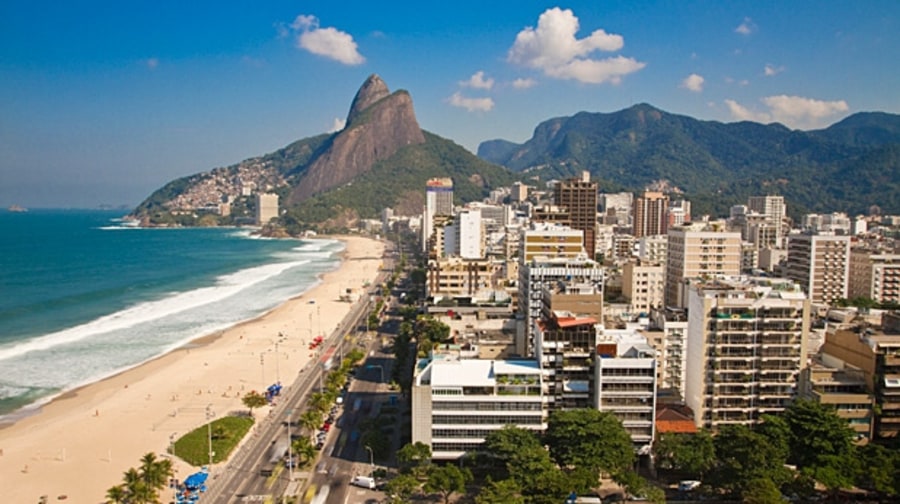Brazil, a vast and diverse country, is home to a myriad of regions that contribute significantly to its economic prosperity. From bustling urban centers to resource-rich areas, Brazil boasts a wealth of natural and economic resources. In this exploration, we will delve into some of the richest places in Brazil, examining the factors that contribute to their economic prominence.
- São Paulo:
At the forefront of Brazil’s economic landscape is São Paulo, the country’s largest city and economic powerhouse. As the financial and industrial heart of Brazil, São Paulo houses the headquarters of numerous multinational corporations and financial institutions. Its robust economy is diversified, encompassing finance, technology, manufacturing, and services. The city’s strategic location, coupled with a skilled workforce, makes São Paulo a magnet for business and investment.
- Rio de Janeiro:
Renowned for its breathtaking landscapes and vibrant culture, Rio de Janeiro is also a significant economic hub in Brazil. The city’s economy thrives on industries such as oil and gas, tourism, and services. With the presence of Petrobras, one of the largest oil companies globally, Rio de Janeiro plays a pivotal role in Brazil’s energy sector. The city’s iconic landmarks, including Sugarloaf Mountain and Copacabana Beach, contribute to its allure as a global tourist destination, further boosting its economic vitality.
- Brasília:
As the capital of Brazil, Brasília holds a unique position in the country’s economic landscape. While it may not rival São Paulo or Rio de Janeiro in sheer economic output, Brasília is a political and administrative hub, home to government institutions, ministries, and foreign embassies. The city’s planned architecture and modern infrastructure reflect its role as the political center of Brazil, influencing policies that shape the nation’s economic direction.
- Campinas:
Situated in the state of São Paulo, Campinas stands out as a key industrial and technological hub. The city’s economy is diversified, encompassing sectors such as agriculture, technology, and manufacturing. Campinas is often referred to as the “Brazilian Silicon Valley” due to the concentration of technology companies and research institutions in the region. With a well-educated workforce and a focus on innovation, Campinas continues to attract investments in technology and research and development.
- Belo Horizonte:
Belo Horizonte, the capital of the state of Minas Gerais, is a major player in Brazil’s mining industry. The state of Minas Gerais is rich in mineral resources, particularly iron ore, and Belo Horizonte serves as a hub for mining operations and related industries. The city’s economic landscape has expanded beyond mining to include services, manufacturing, and technology, contributing to its status as one of the wealthiest cities in Brazil.
- Porto Alegre:
Located in the southernmost state of Rio Grande do Sul, Porto Alegre is a prominent economic center with a strong focus on commerce, services, and industry. The city’s strategic position as a transportation and trade hub has led to a robust economy, supported by sectors such as agribusiness, manufacturing, and technology. Porto Alegre’s commitment to sustainability and quality of life further enhances its appeal for businesses and residents alike.
- Manaus:
Nestled in the heart of the Amazon rainforest, Manaus stands out as an economic hub with a unique set of characteristics. The city’s Free Economic Zone has attracted investments in manufacturing, particularly in the electronics and automotive industries. The presence of major multinational companies has contributed to Manaus’s economic growth, while its location along the Amazon River provides logistical advantages for transportation and trade.
- Curitiba:
Curitiba, the capital of the state of Paraná, is celebrated for its urban planning and sustainable development initiatives. The city’s economy is diverse, encompassing industries such as automotive, information technology, and services. Curitiba’s commitment to environmental sustainability, efficient public transportation, and quality of life has garnered international recognition. The city’s innovative approach to urban development has attracted businesses and residents alike, contributing to its economic prosperity.
Conclusion:
Brazil’s economic landscape is characterized by a diverse array of regions, each contributing to the nation’s overall prosperity. From the bustling metropolis of São Paulo to the natural resource-rich areas of Belo Horizonte and Manaus, these cities play pivotal roles in shaping Brazil’s economic trajectory. As the country continues to evolve, these economic hubs will likely remain at the forefront of Brazil’s economic prowess, driving innovation, development, and prosperity for years to come.




